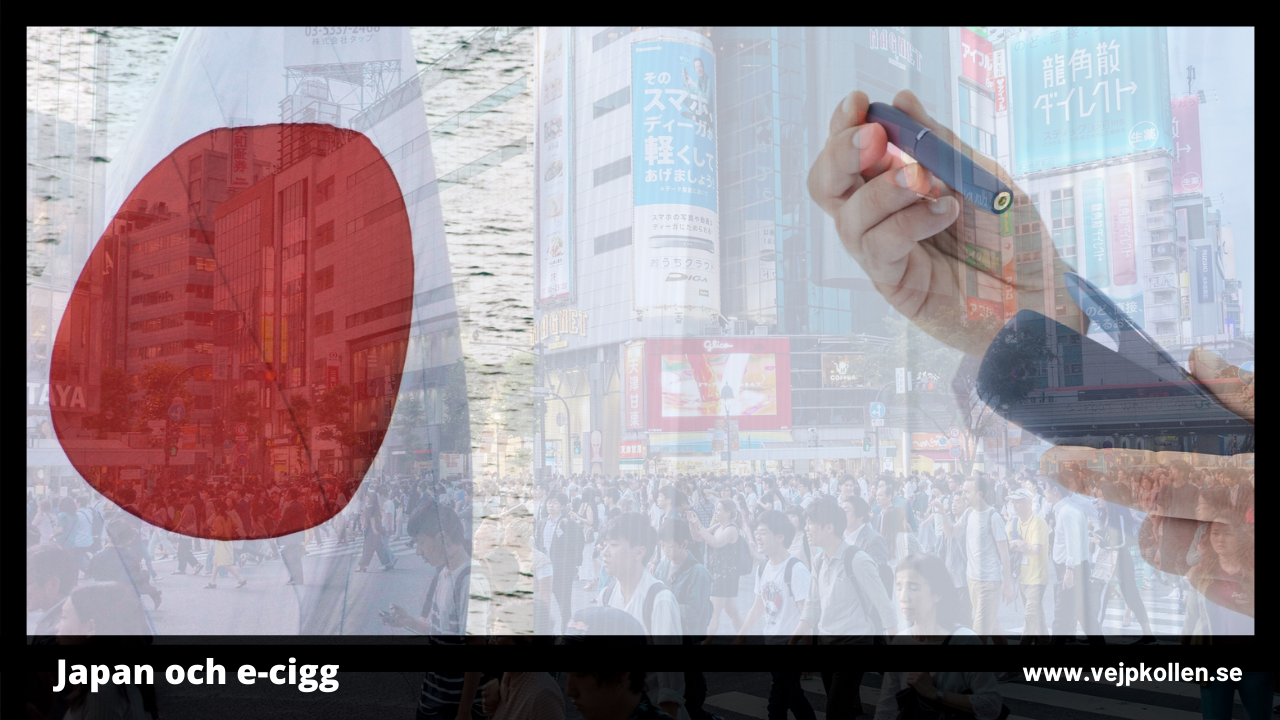E-cigarettes with nicotine are banned in Japan. Meanwhile, the market for tobacco companies' version of e-cigs - heat-not-burn - is growing. Japan's largest cigarette manufacturer is now focusing more on electronic solutions.
Cigarette sales continue to fall in Japan, Reuters reports. One of the reasons is that heat-not-burn products are attracting more and more smokers in the country. Heat-not-burn is the tobacco companies' answer to traditional e-cigarettes, using tobacco instead of e-liquid to deliver nicotine. Phillip Morris' variant, IQOS, has steadily grown in popularity and in 2018 accounted for 16 per cent of tobacco sales in Japan, according to the WHO.
More profit with heat-not-burn
For Japan Tobacco, which accounts for half of all cigarette sales in Japan, the reduction in smoking means 23% less profit in 2021. At the same time, Japan Tobacco has fallen behind its competitors in the market for heat-not-burn products. The profit margins for so-called heatsticks is much higher than for cigarettes and Japan Tobacco says that they will invest more in their own variant, Ploom stick. 1000 employees are given notice of redundancy to cover the expected losses.
More harmful than e-cigarettes
Heat-not-burn (HNB) products have been on the market since 2014. The technology is based on heating tobacco, in the same way that e-liquid is heated in an e-cigarette. The health risks associated with HNB products are likely to be less than with tobacco smoking. However, the UK Public Health Agency, a world leader in tobacco harm reduction, notes that the evidence base for assessing the health risks of HNB is currently thin.
"Of the 20 studies we looked at, 12 originated from the tobacco companies themselves. The studies suggest a harm reduction effect for smokers, but we need more independent studies to draw firm conclusions. HNB products are likely to emit fewer toxic chemicals than cigarettes, but more harmful substances than regular e-cigarettes," writes the Department of Health, in its annual report on the risks of e-cigarettes and related products, 2018.
Not allowed to sell e-liquid with nicotine
In 2020, Phillip Morris was authorised to promote IQOS as a harm reduction product in the US. Other HNB products are also on the market in Europe. But it is in Japan and South Korea that sales are growing the most. In Japan, HNBs are subject to the same laws as regular tobacco products, including taxes and bans. Regular e-cigarettes and e-liquid with nicotine are banned from sale. Nicotine-containing e-liquid is regulated as a medicine and currently no e-juice manufacturer is authorised to sell the products in the country. Japanese e-cigarette users are able to import nicotine liquid for personal use, according to a report by the European Commission. Global State of Tobacco Harm Reduction.




